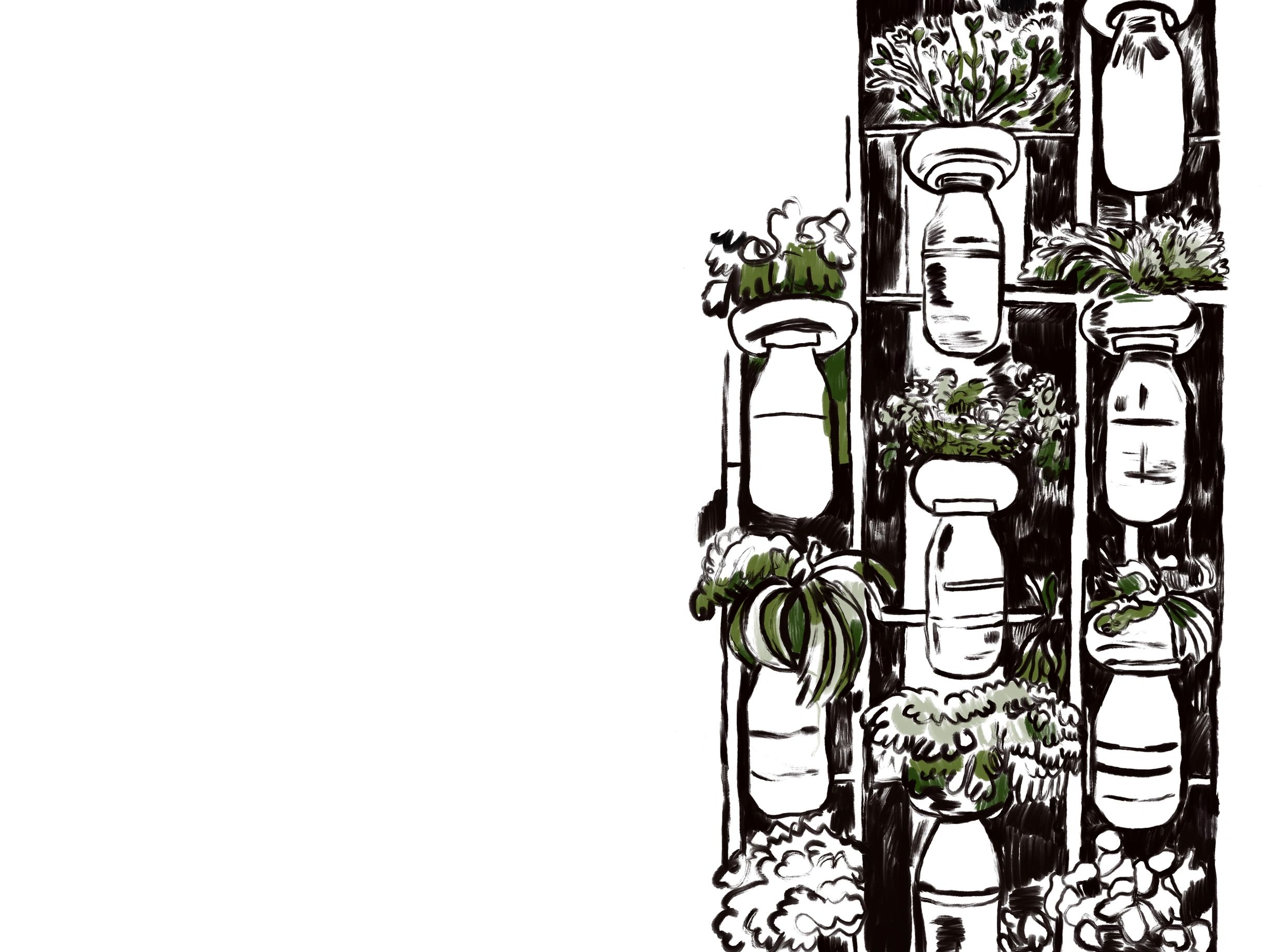
HYDROPONICS AS A SERVICE
We produce hydroponic nutrient from food waste collected in the Brighton and Hove area. We ferment this with Bokashi bran to create high quality hydroponic nutrient for use in installations in schools, supermarkets and anywhere with access to power and water. We offer end to end support and wrap around care
What is Hydroponics?

Hydroponics is the technique of growing plants using a water-based nutrient solution rather than soil, and can include an aggregate substrate, or growing media, such as vermiculite, coconut coir, or perlite. Hydroponic production systems are used by small farmers, hobbyists, and commercial enterprises.
For high growth, short life span crops, particularly leafy greens, it offers a powerful means for community food resilience as crops can be produced quickly and with the absence of soil and natural light.
Why Deviant Botanicals?

> We help you get started
Setting up a system can appear expensive and time consuming- it's not. We bring simplicity to bust myths and rehabilitate the image for hydroponics for food resilience whilst tackling food waste in your area.
> We provide a personalised service
Deviant Botanicals will agree a service and maintenance schedule with you and take care of your installed system on a pre-agreed basis, with additional call out support if needed. We offer schools engagement and student-orientated curriculum which positions hydroponics as one of our key responses for food security in times of climate uncertainty.
> We offer food waste nutrient solution
Deviant Botanicals produces a high quality hydroponic nutrient solution based on fermentation of food waste, solely from vegetable and cereals, with no pollutants from meat and dairy industries.
With a firm belief in the power of the circular economy, the company works with food waste from restaurants to ‘pickle’ their waste, under pressure in state of the art anaerobic digesters. This creates a rich nutrient solution for hydroponic gardening, as well as soil improver compost as a by-product.
Hydroponics For Everyone - the Bokashi Way!
Bokashi is a Japanese word meaning "fermented organic matter." Developed in the early 1980s by Dr. Teuro Higa, a professor at the University of the Ryukyus, Okinawa, Japan, the method involves layering kitchen scraps (vegetables and fruits, as well as meat and dairy scraps) with a bokashi inoculant in a special bucket. Unlike traditional composting, which is an aerobic process that requires oxygen, bokashi is an anaerobic process that requires that you isolate the materials from oxygen as much as possible. The recipe for traditional composting is a mixture of green materials high in nitrogen, brown materials high in carbon, and air and water. The bokashi process is a fermentation process rather than a traditional composting method.Dev Bot believe that although some specialist knowledge is important, hydroponics is for everyone. Our work with schools, the generations of the future, have helped us create a unique curriculum offer which brings concepts of circular design, regenerative economics and food security sensitively into children’s lives.
Contact Us
Copyright © 2025 Deviant Botanicals - All Rights Reserved. All illustrations and webdesign @bonesillustration